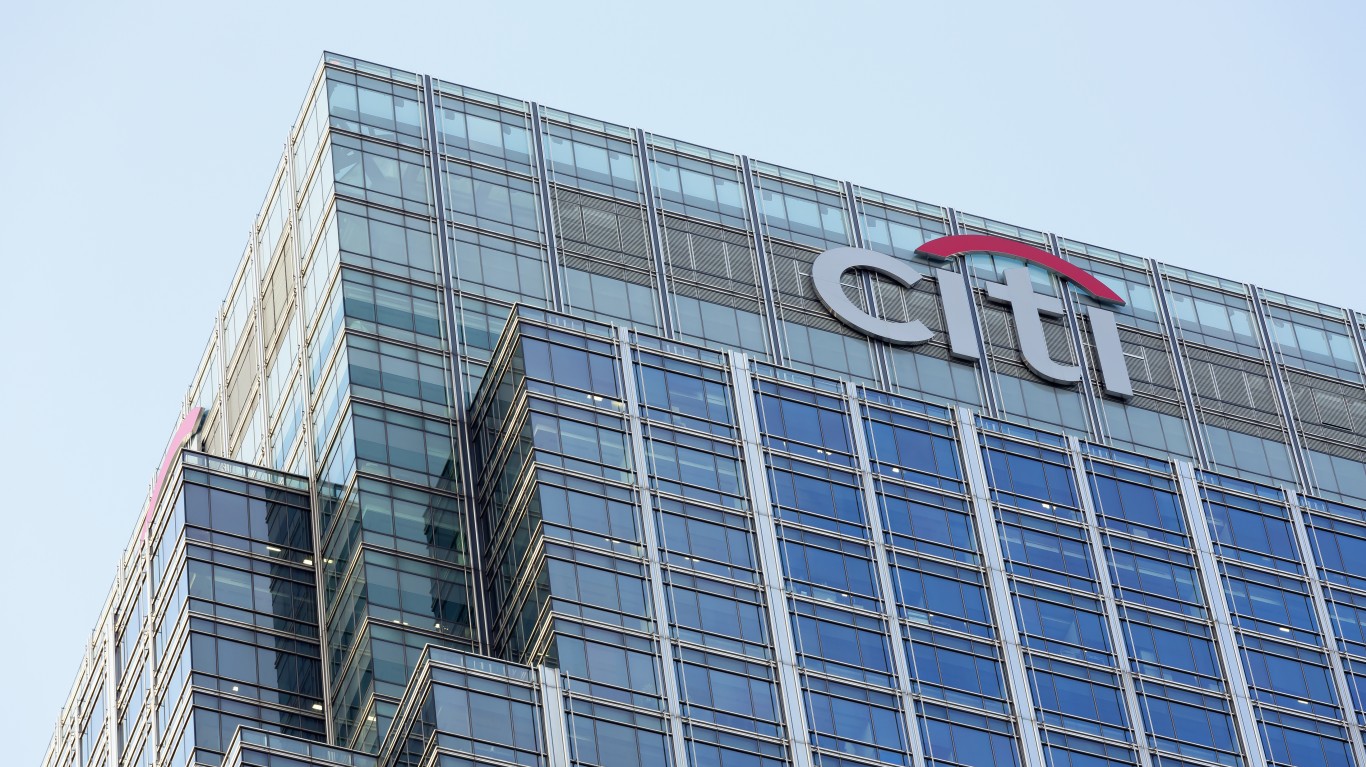Investing
Citigroup Initiates Coverage of Chesapeake Energy With Neutral Recommendation

Published:
Last Updated:

On February 8, 2023, Citigroup initiated coverage of Chesapeake Energy with a Neutral recommendation.
Analyst Price Forecast Suggests 62.24% Upside
As of February 9, 2023, the average one-year price target for Chesapeake Energy is $133.01. The forecasts range from a low of $106.05 to a high of $168.00. The average price target represents an increase of 62.24% from its latest reported closing price of $81.98.
The projected annual revenue for Chesapeake Energy is $8,906MM, a decrease of 34.48%. The projected annual EPS is $21.27, a decrease of 8.47%.
Chesapeake Energy Declares $0.55 Dividend
On November 1, 2022 the company declared a regular quarterly dividend of $0.55 per share ($2.20 annualized). Shareholders of record as of November 14, 2022 received the payment on December 1, 2022. Previously, the company paid $0.55 per share.
At the current share price of $81.98 / share, the stock’s dividend yield is 2.68%. Looking back five years and taking a sample every week, the average dividend yield has been 5.19%, the lowest has been 1.84%, and the highest has been 11.57%. The standard deviation of yields is 3.39 (n=80).
The current dividend yield is 0.74 standard deviations below the historical average.
Additionally, the company’s dividend payout ratio is 0.46. The payout ratio tells us how much of a company’s income is paid out in dividends. A payout ratio of one (1.0) means 100% of the company’s income is paid in a dividend. A payout ratio greater than one means the company is dipping into savings in order to maintain its dividend – not a healthy situation. Companies with few growth prospects are expected to pay out most of their income in dividends, which typically means a payout ratio between 0.5 and 1.0. Companies with good growth prospects are expected to retain some earnings in order to invest in those growth prospects, which translates to a payout ratio of zero to 0.5.
What are large shareholders doing?
Blackstone Group holds 12,666K shares representing 9.45% ownership of the company. No change in the last quarter.
Capital World Investors holds 10,121K shares representing 7.55% ownership of the company. In it’s prior filing, the firm reported owning 9,492K shares, representing an increase of 6.21%. The firm increased its portfolio allocation in CHK by 30.89% over the last quarter.
Oaktree Capital Management holds 9,800K shares representing 7.32% ownership of the company. In it’s prior filing, the firm reported owning 10,501K shares, representing a decrease of 7.15%. The firm increased its portfolio allocation in CHK by 2.45% over the last quarter.
Prudential Financial holds 6,066K shares representing 4.53% ownership of the company. In it’s prior filing, the firm reported owning 6,205K shares, representing a decrease of 2.30%. The firm increased its portfolio allocation in CHK by 21.34% over the last quarter.
Wellington Management Group Llp holds 5,271K shares representing 3.93% ownership of the company. In it’s prior filing, the firm reported owning 4,116K shares, representing an increase of 21.93%. The firm increased its portfolio allocation in CHK by 57.37% over the last quarter.
What is the Fund Sentiment?
There are 1011 funds or institutions reporting positions in Chesapeake Energy. This is an increase of 35 owner(s) or 3.59% in the last quarter. Average portfolio weight of all funds dedicated to CHK is 0.67%, an increase of 4.95%. Total shares owned by institutions decreased in the last three months by 3.11% to 156,867K shares. The put/call ratio of CHK is 0.73, indicating a bullish outlook.
Chesapeake Energy Background Information
(This description is provided by the company.)
Chesapeake Energy Corporation is an American exploration and production company, which is headquartered in Oklahoma City.
This article originally appeared on Fintel
The last few years made people forget how much banks and CD’s can pay. Meanwhile, interest rates have spiked and many can afford to pay you much more, but most are keeping yields low and hoping you won’t notice.
But there is good news. To win qualified customers, some accounts are paying almost 10x the national average! That’s an incredible way to keep your money safe and earn more at the same time. Our top pick for high yield savings accounts includes other benefits as well. You can earn up to 3.80% with a Checking & Savings Account today Sign up and get up to $300 with direct deposit. No account fees. FDIC Insured.
Click here to see how much more you could be earning on your savings today. It takes just a few minutes to open an account to make your money work for you.
Thank you for reading! Have some feedback for us?
Contact the 24/7 Wall St. editorial team.